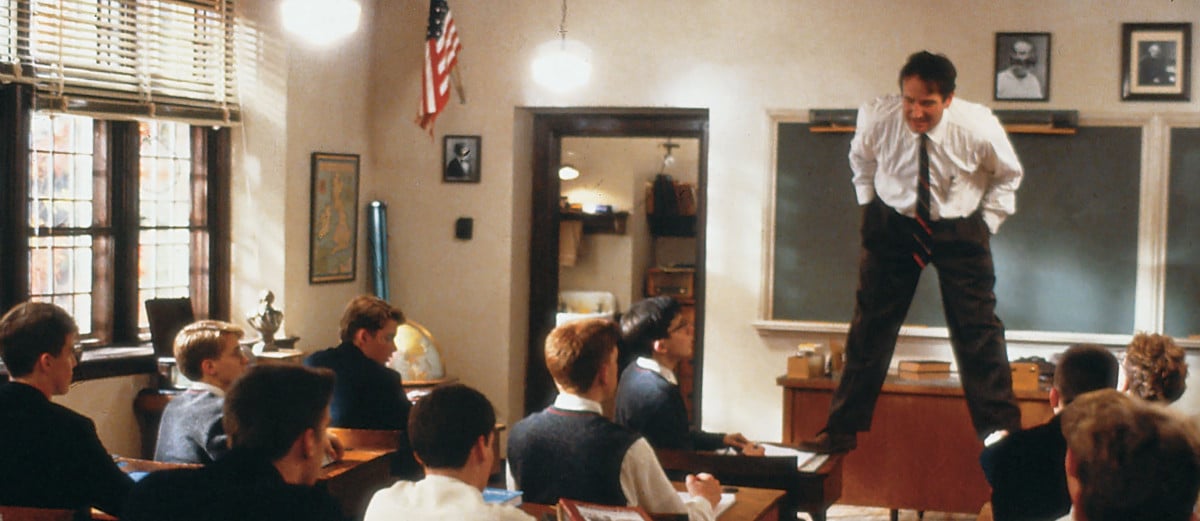Fans of the recent hit mini-series, Inventing Anna, will recall a scene where the reporter adopts the mantra, “I’m not special,” when she’s racing to meet a deadline while also giving birth. It’s a memorable scene. She’s right. She’s not special. None of us is special, but we’d all like to think we are. I wish I had considered that mantra while I was agonizing over the decision whether to return to the classroom in the Fall of 2020 or retire early. I sat out an entire year before finally deciding to take early retirement. It was the hardest decision I ever made. I cried almost daily. Every school bus sighting was a gut punch.
You see, I thought I was special.

My resume is solid, I’d never had trouble landing teaching jobs, and I enjoyed a fair amount of success fulfilling my life’s calling. In 2008, I was named Second Runner-Up to the Arkansas Teacher of the Year.
None of that really mattered though. What mattered were the little moments in teaching: The hugs, the smiles, the adorable notes. The time Isiah gave me his Halloween candy—Fun Dip, his favorite. The Dollar Store Christmas gift with a card addressed in a first-grader’s scrawl to “Mrs. Wallets.” Once, during the Book Fair, a student’s mother had neglected to give her money to buy a book, so the student created her own—illustrated in full color. She was able to buy a few books and even got change back.
It’s almost as if teachers are actually taught how to manage discussions involving opposing viewpoints or controversial topics. They are trained to keep bias at bay when teaching critical thinking.

What mattered was the aching feet and heart at the end of practically every day. Watching tiny people trying to persist while processing trauma: homelessness, abuse, the deaths of their parents by murder-suicide.
What matters still are the texts, Snapchats, and Facebook messages I get from former students. Sometimes the sentiment is, “I watched Sgt. York the other day and it reminded me of you and your history class.” Once, a doctor in residency messaged to let me know about a patient from Djibouti. None of the other medical professionals on the floor believed that was a real place. She was the only one who had heard of the country and could find it on a map. (See—even doctors need geography. Everyone does.)
What matters are watching those former students grow, graduate, start families and careers. What matters was the recent request for guidance on how best to communicate with elected officials to improve our mental health care system and help for prison employees especially. Safe to say, he and I are polar opposites politically, but he saw a desperate need and wanted to get active in finding solutions.
What matters are their phone calls asking for advice on managing care for their aging parents or decisions about delaying graduate school.

They are even willing to tackle my assignments more than 20 years later. I posed the following questions: What do you remember about our time together? Do you carry any of that experience with you today in a way you value? Do you think you were indoctrinated?
Here are some of the responses:
“I enjoyed honest, relevant, safe conversations in your classroom where we could all share our opinions on culture and beliefs and learn from each other, not just a textbook.”
“You placed equal value on each country and each civilization or perspective being discussed. You initiated deep curiosity in me to know more about the experiences of others. I remember feeling like every person and their culture mattered in our world. I still carry that feeling in my heart and mind today.”
“You shared knowledge without condescending.”
“I feel like people were eager to learn from you due to the fact that you were genuinely open and accepting to all who entered.”
“You encouraged us to learn more than facts and dates. You encouraged us to do projects that hit close to home, like the integration of our own school system.”
“Wokeism wasn’t a thing in the 90s or at least it seemed that way. I do remember you going above and beyond to help me out. You spent considerable time with me and my homework for other classes that weren’t even yours.”

It’s almost as if teachers are actually taught how to manage discussions involving opposing viewpoints or controversial topics. They are trained to keep bias at bay when teaching critical thinking.
Those comments from former students are certainly rewarding. They sustain me through my struggles with immense feelings of guilt for leaving the classroom.
What mattered was the aching feet and heart at the end of practically every day. Watching tiny people trying to persist while processing trauma: homelessness, abuse, the deaths of their parents by murder-suicide.
Those same sentiments can be spoken of almost every single other educator with whom I ever worked. I didn’t learn those skills in a vacuum. Colleagues offered living examples of how to teach, guide, and build strong foundations for students to support them through life.
What I truly treasure is how those former students are still teaching me. Any teacher will tell you they likely learn more from their students than vice versa. As deeper conversations develop in our culture about racism, patriotism, and the rights of women, among other topics, I have reached out to former students with questions. They share information, personal experiences, and even resources to learn more.
Years after we worked together in a public-school classroom, we are still learning and growing. Together.
